If you live with chronic stress or anxiety, you may spend a lot of time trying to manage your symptoms through tools like exercise, deep breathing, and mindfulness.
But did you know that the foods you choose to eat every day can trigger or make symptoms of stress and anxiety worse?
That’s not to say stress management tools aren’t helping, but if chronic stress is still affecting your life, it may be worth considering what’s on your plate.
Research shows that overeating certain foods can lead to generate pressure, anxietyand frustrated. The good news is that your food intake is under your control. By making healthier food choices, you can help manage your stress levels and, in many cases, significantly improve your mental health.
So, which foods should you avoid and which foods should you embrace? Let’s find out.
What foods cause stress?
When we feel stressed or anxious, our instinct is to seek food and drink for comfort, maybe even escape.However, the foods we often eat during times of stress Increase Our stress levels add fuel to the fire.
Eating too much of any kind of food can be unhealthy, but excessive consumption of the following foods and beverages can be especially harmful to a person’s psyche. These stress-inducing foods are common in all corners of the globe, but tend to be more prevalent in food deserts – areas where access to affordable and nutrient-dense food is difficult.
Depending on where you live and other factors, you may not be able to completely eliminate these foods and drinks, but try to eat them sparingly.
#1: Sweets and Desserts

Candies, cakes, cookies, pies, and other sugar-sweetened confections all contain added sugars, which can cause your blood sugar to spike and crash like a roller coaster.
You may get an initial energy boost from eating sugary foods, but once the energy boost peaks, blood sugar levels drop rapidly. This spike and dip can trigger stress and anxiety that can feel like a panic attack.
#2: Sugary Drinks

Many sweetened beverages, like soda, contain sugar and caffeine, which can do a double whammy to your stress levels. A 12-ounce can of soda can contain up to 8-13 teaspoons of sugar and 30-50 mg of caffeine, depending on the type.
With this combination, not only will you experience anxiety-producing blood sugar spikes, but the caffeine will stimulate your central nervous system, triggering your body’s fight-or-flight response.
In some people, regular intake of large amounts of sugar (such as in sugar-sweetened beverages) may lead to addictionfurther exacerbating symptoms of stress and anxiety.
#3: Alcohol

Many people reach for a glass of wine or beer when they’re stressed or anxious — but such attempts at self-soothing often backfire. While it may seem that beverages can calm your nerves, alcohol can negatively affect your hydration, sleep, and body. Serotonin and dopamine levelsall of which can trigger symptoms of stress.
Also, excessive drinking can lead to addiction and contribute to Stress-Causing Health Issuesincluding heart disease, cancer, dementia, depression and anxiety.
#4: Gluten
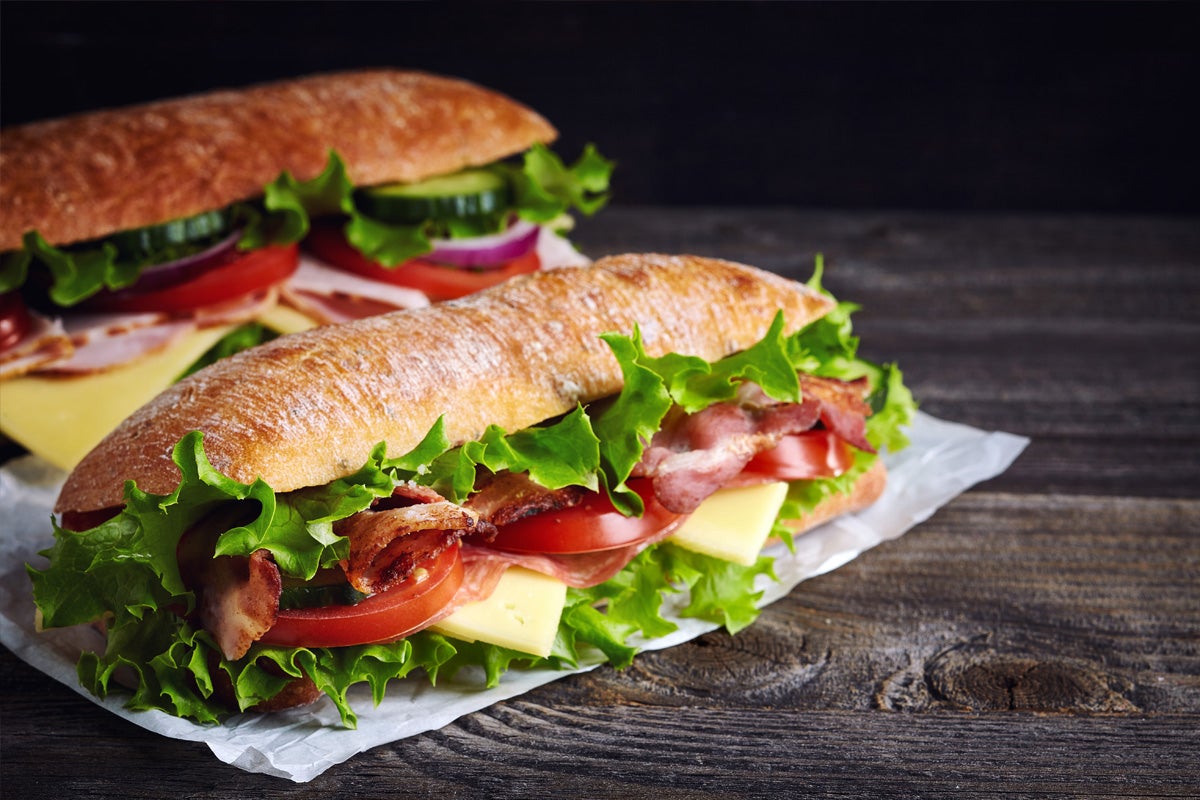
Is Your Sandwich Bread Stressing You? Most people can eat gluten – a group of proteins found in various grains – without issue. However, research shows that Gluten May Cause Mood Disorders in Some People.
While it is unclear why some people experience increased depression and anxiety when consuming gluten, it may be due to Changes in the gut microbiomethe community of beneficial bacteria in your digestive tract.
#5: Processed Meat

found an important link Association between processed meat consumption and increased risk of depressive symptoms. Other research found that people who ate more ultra-processed foods like bacon and sausages, have higher perceived stress levels.
The combination of increased depression and higher stress levels is a surefire way to magnify worry and tension.
#6: Caffeinated Products

Caffeine – the world’s most widely used psychoactive substance – is found in popular foods and beverages, including coffee, tea, chocolate, soft drinks and energy drinks. As a stimulant, it speeds up the central nervous system, temporarily boosting mood and delaying fatigue.
Although moderate amounts of caffeine can Helps you stay alert and increase productivity, Too much caffeine can lead to stress in several different ways. It can increase blood pressure and stress hormones, amplify people’s perception of stress, and cause sleep problems.
So, how much caffeine is an overdose?Research shows that the average healthy adult can Consume up to 400 mg of caffeine per day (about four cups of coffee) No adverse side effects. This amount will be different for everyone, so try to find the one that works best for you.
Foods to Help Manage Stress
Now that you’re familiar with which foods and drinks to limit or avoid, it’s time to talk about which foods can help you manage stress. While it’s important to eat a balanced diet that includes a variety of foods, here are some stress-busting foods to include in your diet on a regular basis.
#1: Fruits with Vitamin C
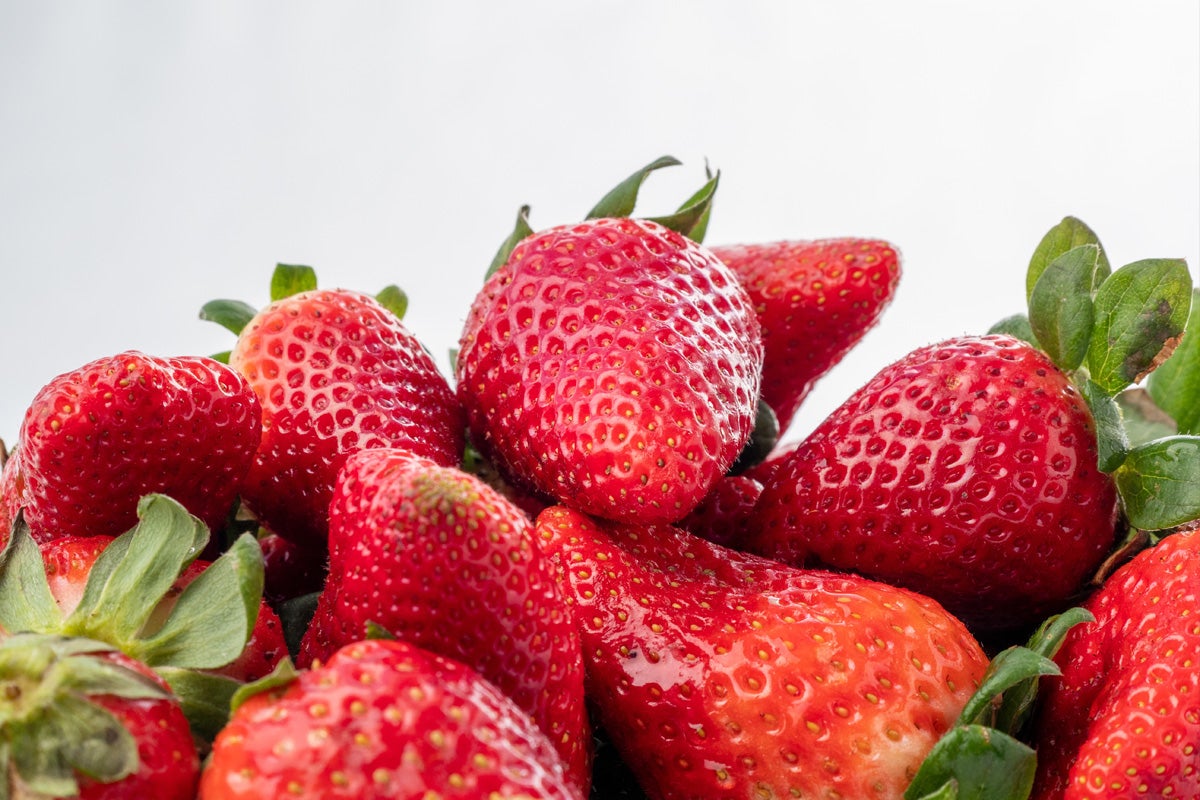
Vitamin C is not only good for colds —It may also help reduce stress and anxiety. Some fruits rich in vitamin C include oranges, grapefruits, lemons, limes, strawberries, cantaloupe and kiwi.
#2: Foods Containing Omega-3 Fatty Acids
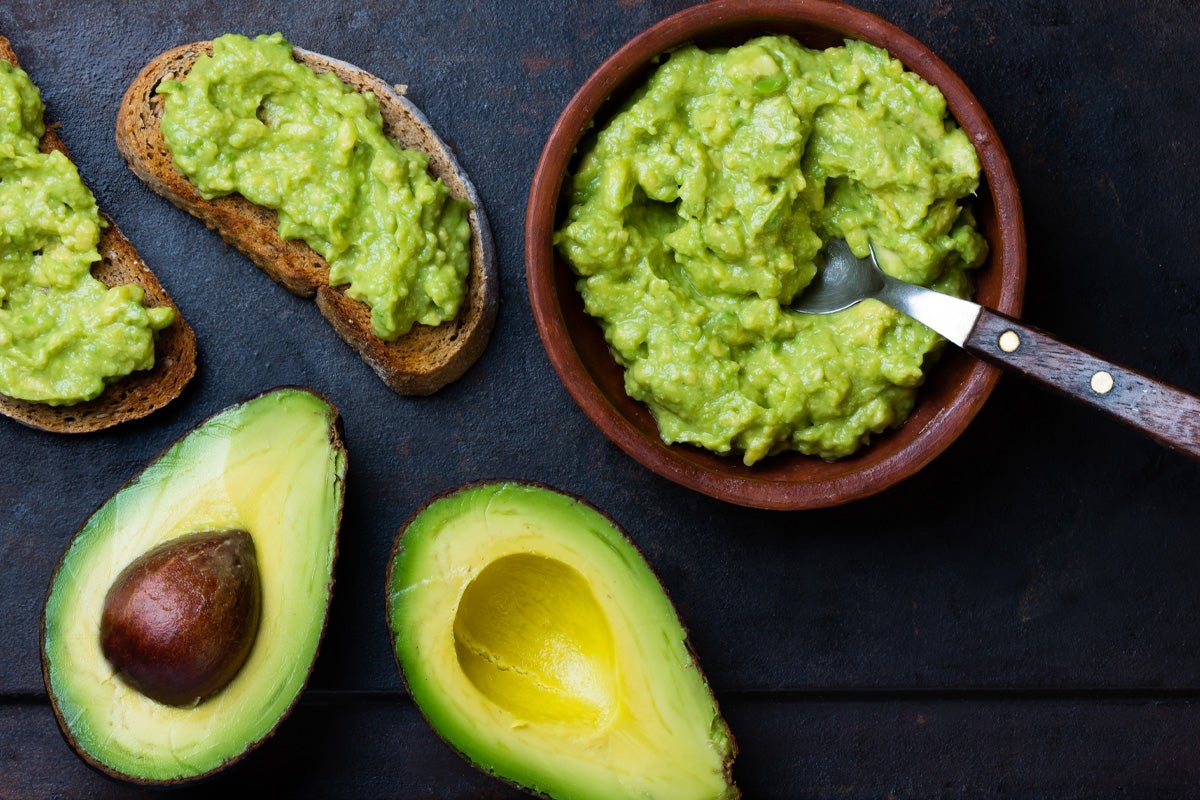
Omega-3 fatty acids are essential fats that the body cannot produce on its own. Therefore, we must get omega-3s from foods such as salmon, herring, mackerel, avocado, soybeans, walnuts, flax seeds, chia seeds, and hemp seeds.
While omega-3s are known for their heart-healthy benefits, they may also Helps improve mood and relieve symptoms of mild to moderate anxiety.
#3: Unrefined Carbs
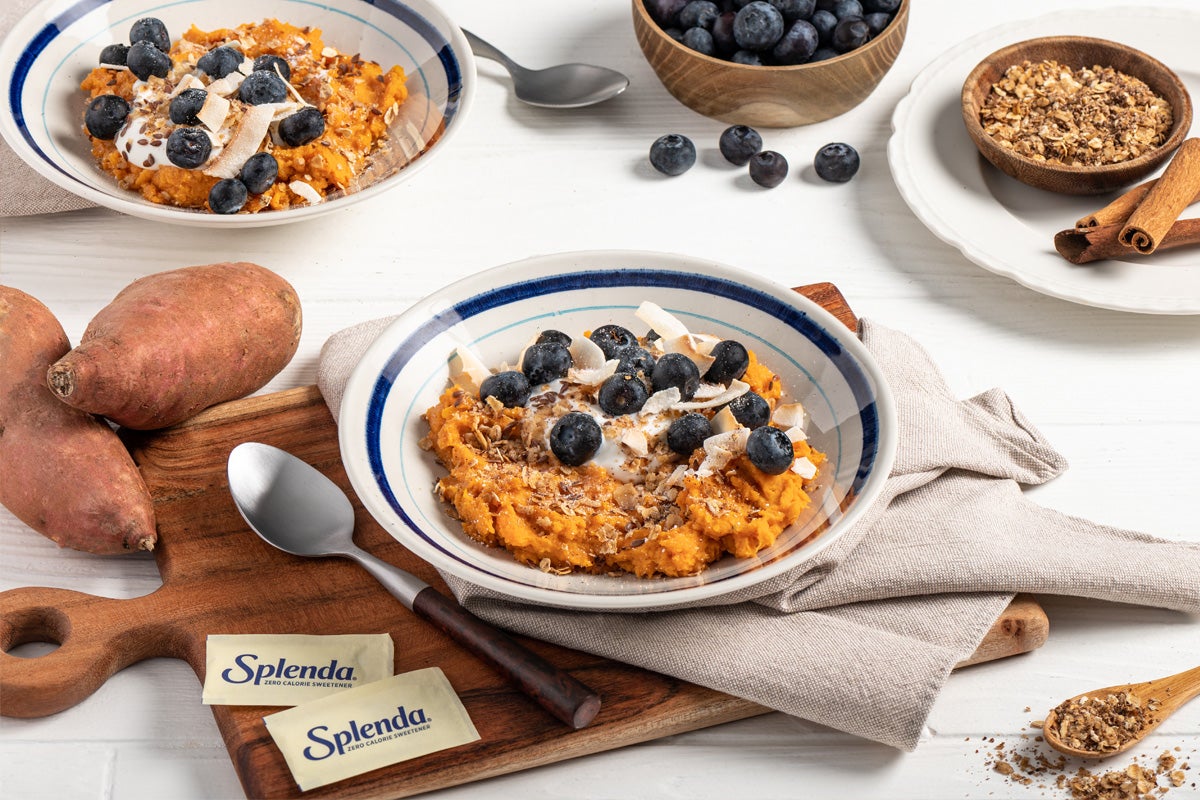
Here’s your license to eat more carbs — that is, unrefined carbs. Unrefined carbohydrates are whole, natural, fiber-rich carbohydrates such as sweet potatoes, whole-grain bread, brown rice, oatmeal, and legumes like kidney and lentils.
In addition to benefiting heart health, digestion, and energy levels, unrefined carbohydrates may Helps fight stress by temporarily increasing serotonin levels in the brain. Next time you’re feeling stressed, grab a bowl of oatmeal instead of donuts.
#4: Sugar-Free Sweetener
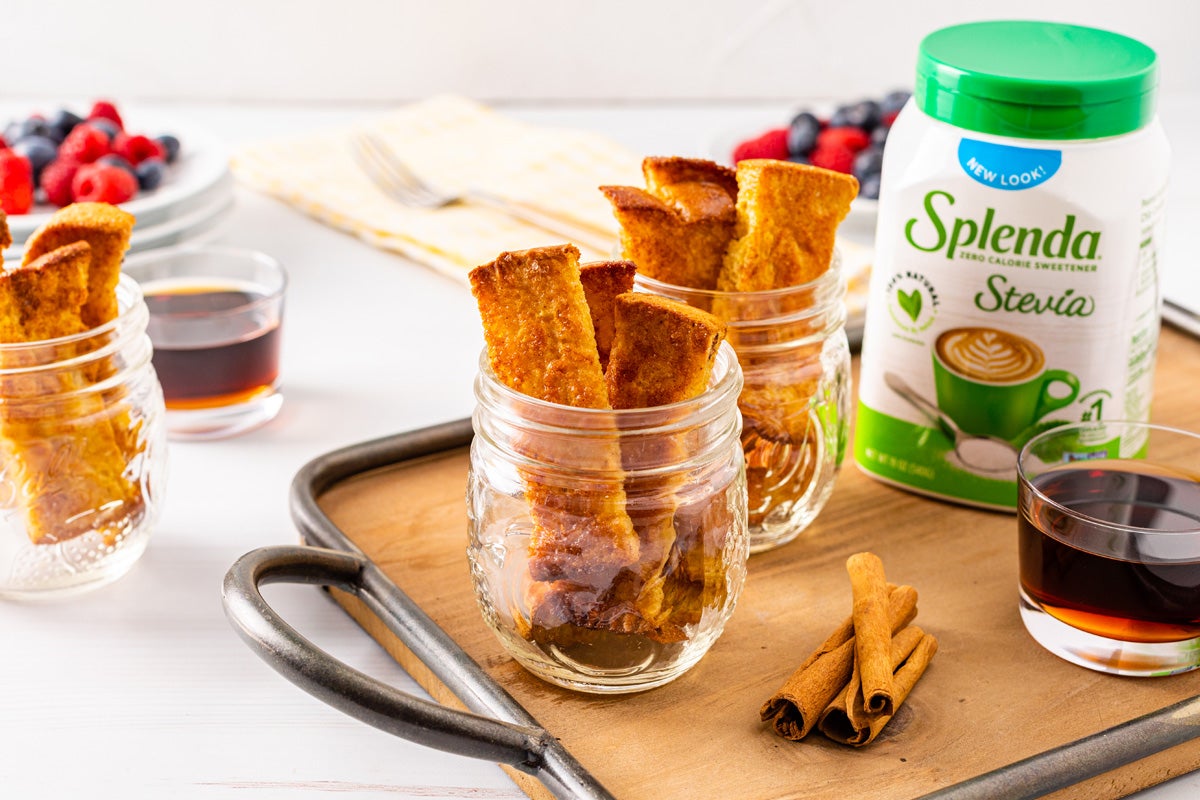
Eating a diet high in sugar has been linked to anxiety and depression, but that doesn’t mean you have to deny your sweet tooth. Natural sugar substitutes like stevia and monk fruit can provide sweetness without the side effects of spikes in blood sugar, mood issues and weight gain.
just use Splenda Stevia Sweetener, Splenda Monk Fruit Sweetener, Splenda Magic Baker Sweeteneror Splenda Original Sweetener (Splenda sucralose) in place of regular sugar in your recipe. These sugar substitutes can be used in baked goods, beverages, oatmeal, and other kitchen products that require sweetness.
A final word on food and stress levels
Cutting back on foods and drinks that trigger stress and anxiety, and increasing your intake of stress-busting foods, is an important step in supporting your physical and mental health.
Don’t feel like you have to overhaul your diet all at once. Do what you can at your own pace. Soon, you will be rewarded by making yourself calmer and happier.
Written by Katie Koschalk, health and wellness writer, certified holistic nutritionist, and certified personal trainer in California.

